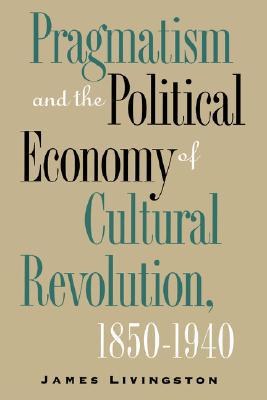

 |

|

Sold Out
Book Categories |
The rise of corporate capitalism was a cultural revolution as well as an economic event, according to James Livingston. That revolution resides, he argues, in the fundamental reconstruction of selfhood, or subjectivity, that attends the advent of an 'age of surplus' under corporate auspices. From this standpoint, consumer culture represents a transition to a society in which identities as well as incomes are not necessarily derived from the possession of productive labor or property. From the same standpoint, pragmatism and literary naturalism become ways of accommodating the new forms of solidarity and subjectivity enabled by the emergence of corporate capitalism. So conceived, they become ways of articulating alternatives to modern, possessive individualism. Livingston argues accordingly that the flight from pragmatism led by Lewis Mumford was an attempt to refurbish a romantic version of modern, possessive individualism. This attempt still shapes our reading of pragmatism, Livingston claims, and will continue to do so until we understand that William James was not merely a well-meaning middleman between Charles Peirce and John Dewey and that James's pragmatism was both a working model of postmodern subjectivity and a novel critique of capitalism.
Login|Complaints|Blog|Games|Digital Media|Souls|Obituary|Contact Us|FAQ
CAN'T FIND WHAT YOU'RE LOOKING FOR? CLICK HERE!!! X
 You must be logged in to add to WishlistX
 This item is in your Wish ListX
 This item is in your CollectionPragmatism and the political economy of cultural revolution, 1850-1940
X
 This Item is in Your InventoryPragmatism and the political economy of cultural revolution, 1850-1940
X
 You must be logged in to review the productsX
 X
 X

Add Pragmatism and the political economy of cultural revolution, 1850-1940, , Pragmatism and the political economy of cultural revolution, 1850-1940 to the inventory that you are selling on WonderClubX
 X

Add Pragmatism and the political economy of cultural revolution, 1850-1940, , Pragmatism and the political economy of cultural revolution, 1850-1940 to your collection on WonderClub |